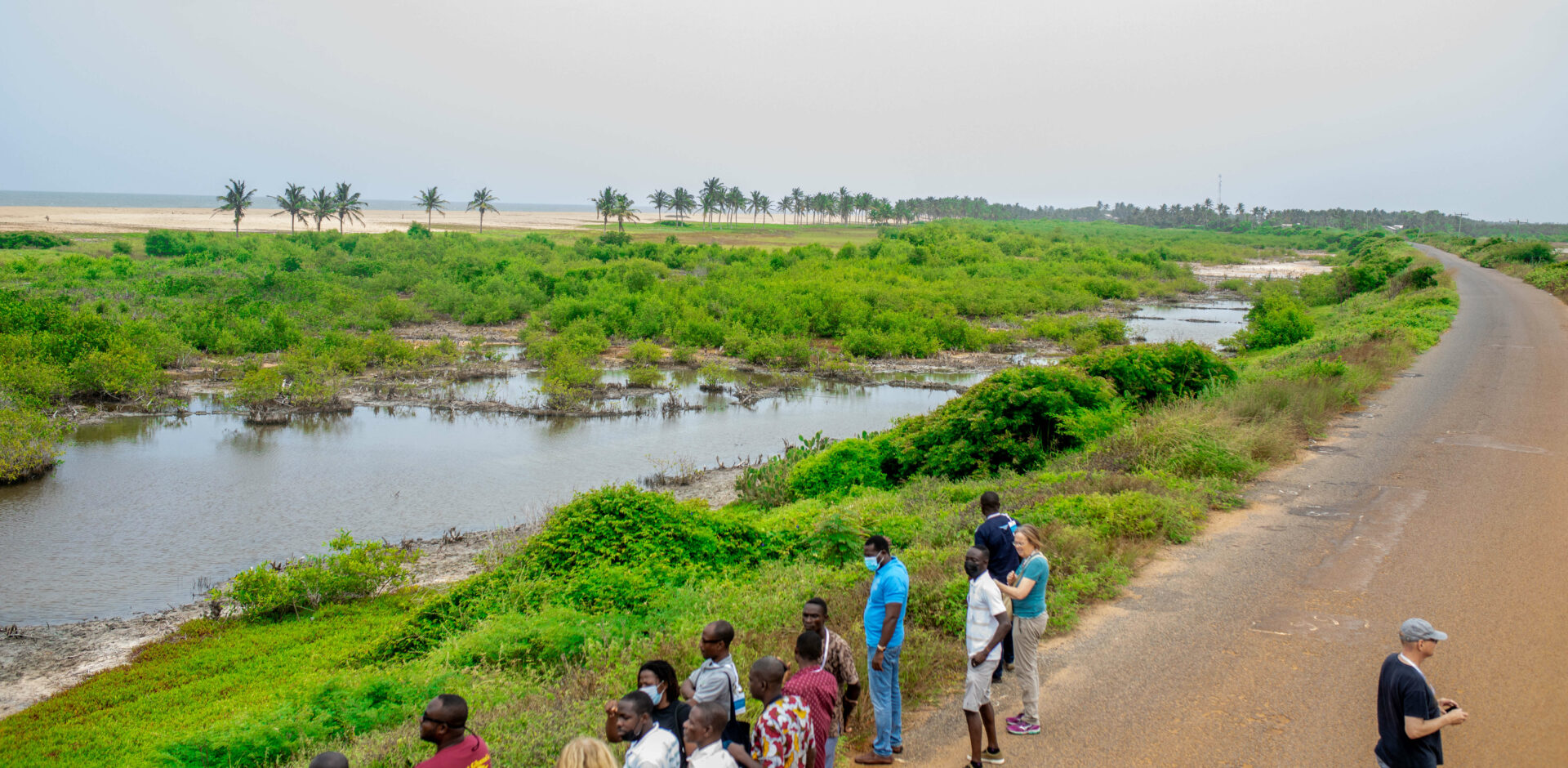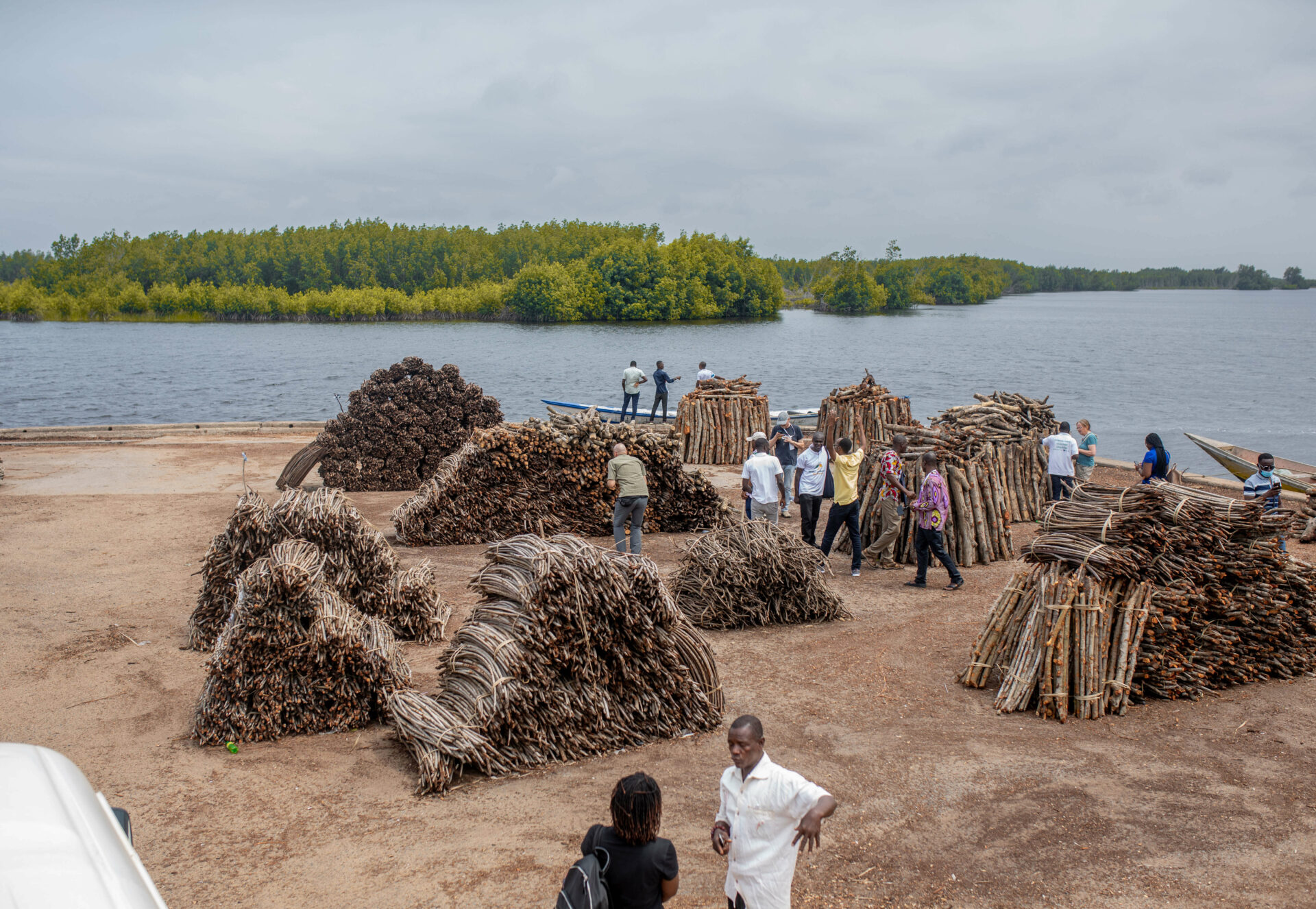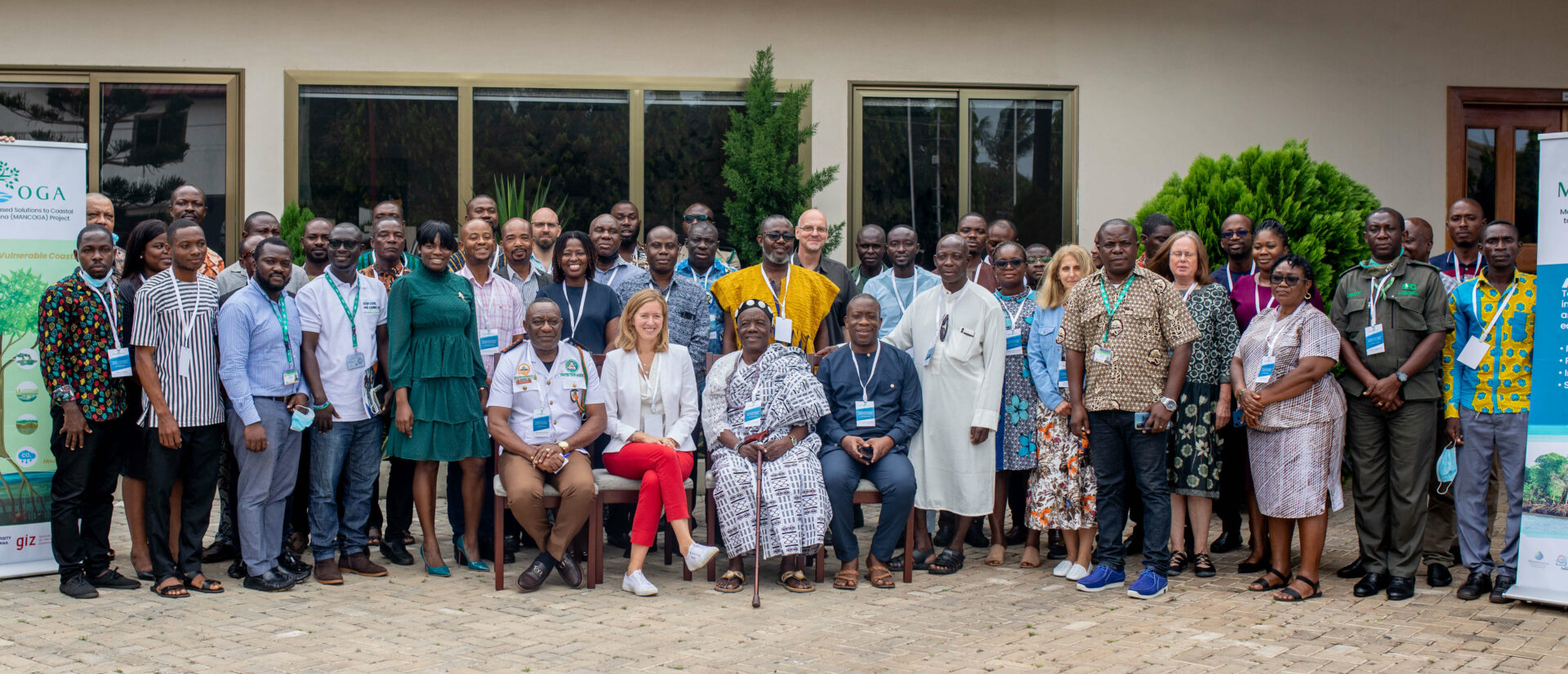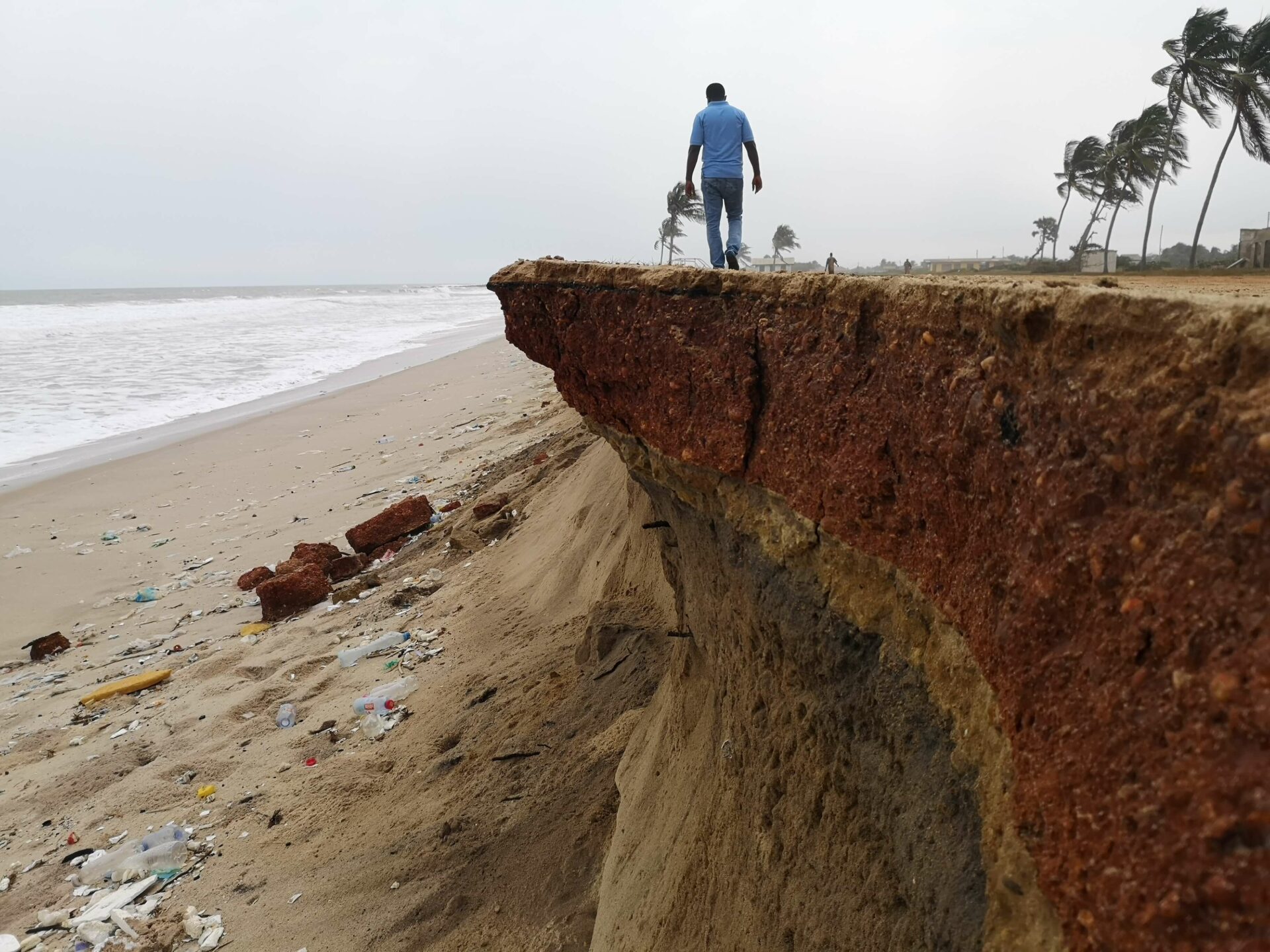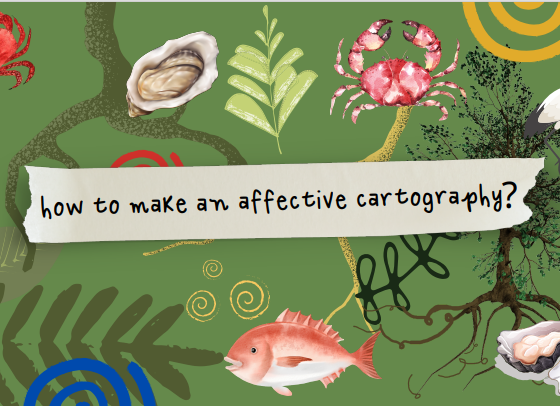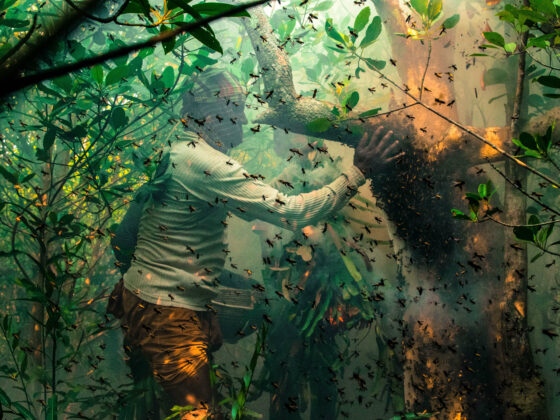Coastal erosion, flooding, and pollution threaten the sustainability of livelihoods, well-being, and health of wetlands in Ghana. Current coastal resilience and alternative livelihood solutions seem insufficient. Mangroves provide natural protection against these hazards and ecosystem services, especially for communities along Ghana’s eastern coast. However, overexploitation, excessive pollution, coastal development, and global climate change endanger their sustainability. Managing these issues is hampered by the lack of reliable data, unsustainable livelihood practices, insufficient stakeholder involvement, and missing pathways to informed decision-making.
The Mangroves as Nature-based Solutions to Coastal Hazards in Eastern Ghana (MANCOGA) project aims to develop a robust participatory Nature-based Solution that uses mangroves to address coastal flooding, erosion, and pollution, as well as blue carbon, ocean acidification, and biodiversity loss, to increase community resilience. MANCOGA will develop a Digital Twin to assess the potential of mangroves for coastal protection and sustainable ecosystem services. The project will explore alternative livelihood options, including a blue carbon economy, to reduce the depletion of mangrove resources.
MANCOGA engages national, sub-national and community level stakeholders across sectors to produce acceptable and implementable solutions at local and national levels. The co-design process identified and engaged relevant stakeholders to build partnerships for collaboration. The project leveraged on existing efforts and networks, brainstormed and used snowballing to generate an inventory of stakeholders. The team also paid courtesy calls to some high-level stakeholder institutions to introduce the project, solicit support and ensure uptake of the project outputs.
Stakeholder engagement using effective communication was critical to the co-design phase. There were in-person interactions at workshops with stakeholders, complemented by continuous engagement on WhatsApp, Twitter, and a custom Community Tool. These helped to identify local challenges, the enablers, and barriers to the implementation potential of mangroves as Nature-based solutions.
A key outcome was the realization that “we all want the same thing” and the recognition of stakeholders’ unique expertise, experience, and interpersonal differences. Very few conflicts arose during the co-design phase due to the inclusive atmosphere and open communication on different channels. In MANCOGA, all parties were comfortable with addressing conflicts with the core team, who, while safeguarding full anonymity, reinforced equity among all stakeholders.
Engagements with stakeholders evolved from sharing expertise and interests to contributing new ideas and expressing needs, demands, and expectations. Over the period, trust has been built and stakeholders increasingly feel confident to share their views irrespective of their standing. This has ensured team building and bonding among stakeholders with a sense of co-ownership of the project. Stakeholders coined the slogan “MANCOGA, Mia tɔe!” (It’s Ours!), expressing co-ownership.
Overall, the co-design process has shaped the design of the implementation phase and further adjusted work plans to include sustainable livelihood assessment which hitherto had not been considered. As co-design transitions into the implementation phase, the project will strengthen stakeholder engagement and participation including identifying additional relevant stakeholders and actively deploying a more effective means of communicating and collaborating with stakeholders.
The MANCOGA Community Tool continuously evolves, with new features and content incorporating stakeholder feedback. Continued co-ownership of the outcomes from MANCOGA is a prerequisite for achieving the project’s envisioned long-term initiative.
